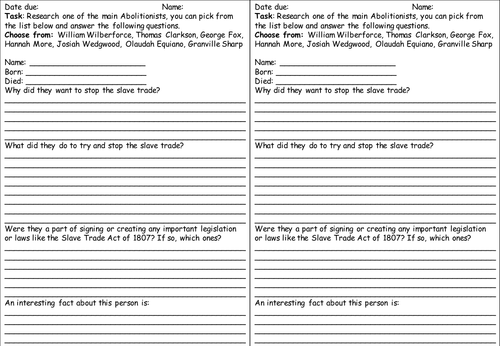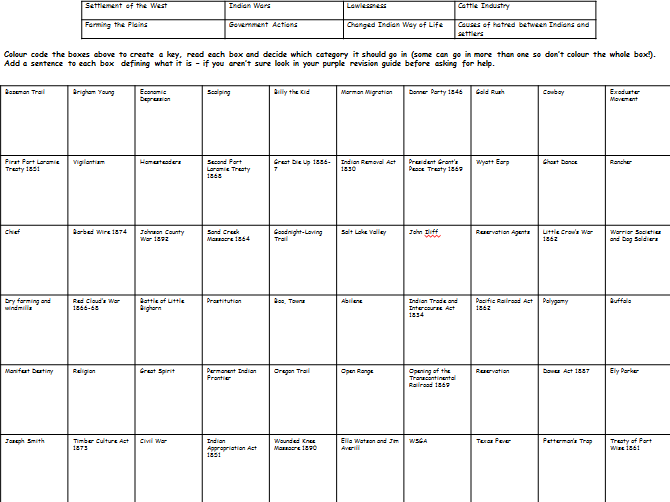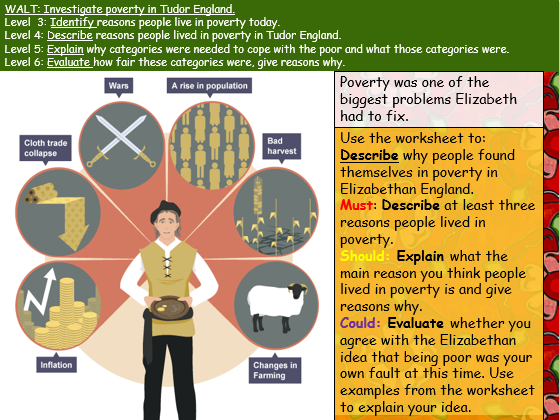
177Uploads
71k+Views
23k+Downloads
All resources

Controlling Religion (Weimar and Nazi Germany: Edexcel 9-1)
WALT: Analyse how far Hitler succeeded in controlling religion.
Identify Hitler’s early policy towards the Church in the Enabling Act.
Describe how Hitler hoped to control the Catholic and the Protestant Church.
Explain why not everyone accepted Hitler’s policies about religion.
Analyse a source to explain how useful it is to a historian examining the catholic response to Hitler’s reforms.
Task one: pupils examine a source from the Enabling Act explaining how Hitler wanted his relationship to look with the church and make an inference
Task two: Carousel activity - how did Hitler gain control of the church? was there any immediate opposition (covered in more detail in a church opposition lesson).
Task three: how far did Hitler succeed in controlling the church? discussion
Task Four: How useful question including structure to guide weaker pupils and key words to prompt focus on knowledge and judgement. Full mark answer accompanies so that you can go through expectations for the 8 mark question with pupils and allow them to self assess and improve their own work based on the example.

Titanic - who was to blame?
Group lesson, pupils work in groups to analyse sources which help them decide who was to blame for the disaster - they annotate each source before moving onto the next.
At the end of the lesson pupils are asked to evaluate who was most to blame, this task is levelled with different tasks for each attainment level.

REVISION Hitler's Rise to Power (Edexcel 9-1: Weimar and Nazi Germany)
This lesson is set to help pupils revise content surrounding Hitler’s rise to power in preparation for Paper 3 of the new edexcel specification (2016).
Pupils will:
Describe the Reichstag Fire
Analyse the reasons he rose to power - differentiated
Plan and answer (if time) a 20 mark interpretation question
Analyse how useful a source is

The Lean Years 1924-28 (Weimar and Nazi Germany: Edexcel 9-1)
WALT: Evaluate why the Nazi Party only received 2.6% of the vote in 1928.
Identify the meaning of the phrase ‘ Lean Years’.
Describe features of the period 1924-28.
Explain why circumstances in Germany lead to little support for the Nazis.
Evaluate why the Nazi Party only received 2.6% of the vote in 1928.
Starter: Pupils complete a freya model with the meaning of 'lean years’
Task one: Describe features of the period 24-28 - pupils complete a carousel task, differentiated worksheet and answer sheet provided
Task Two: Explain why circumstances in Germany lead to little support for the Nazis (see cover photo for activity), WAGOLL and answer slide provided to go through with pupils
Task three: Evaluate why the Nazi’s received 2.6% of the vote: Explain why exam question with sentence starters for PEEL structure.

Spartacist Uprising and Kapp Putsch (Weimar and Nazi Germany: Edexcel 9-1)
Pupils will:
WALT: Examine challenges to the Weimar government by the left and right.
Identify features of left and right wing politics.
Describe the Spartacist Revolt and the Kapp Putsch.
Explain why Germany was weak after the attacks.
Analyse a source to explain why it is useful.
Included is a fully differentiated how useful question including differentiated structure strips.

REVISION Rebellions and exam skills (Edexcel 9-1: Anglo Saxon and Norman England)
WALT: Revise the rebellions against William and evaluate how big of a threat they made towards his reign
Identify reasons people were upset with William’s leadership
Describe each rebellion.
Compare rebellions to explain how William responded to each threat.
evaluate how far you agree with a statement to come to a clear judgement
As with all of my revision lessons the worksheets cover all tasks so that pupils do not require their exercise books.
Task one: what did people have to be unhappy about?
Task two: Video task
Task three: line task (pictured as cover image) alongside information sheet to help pupils remind themselves of key content.
Task four: Exam question from past paper fully planned on slides to support pupils

Nazi Opposition (Church and Youth Groups) (Edexcel 9-1: Weimar and Nazi Germany)
Revision lesson that explores the church and youth groups
pupils colour code the actions of each group and spend the majority of the lesson exploring and how useful question.
the sources are about the reactions of the Nazis towards the opposition groups.

Abolition in America and Britain - two lessons, worksheets and homework
Lesson 8 and 9 in slavery scheme of work.
Worksheets included within the lesson powerpoint as hidden slides.
Homework:
Profile of a famous abolitionist.
Lesson 1: Abolition in Britain - Focus on Slave Trade Act 1807, reasons for and against, William Wilberforce
Lesson 2: Abolition in America - focus on comparison of Britain and America, Abraham Lincoln, civil war

Pointless - Medicine Through Time
Designed to cover all units of medicine through time as a last lesson of term activity.

Transcontinental Railroad (American West (Edexcel history 9-1))
Transcontinental railroad lesson with skills building narrative account section.
Fully supported with differentiated worksheets to allow lower ability pupils to access learning.

Cattle Industry Decline (American West (Edexcel history 9-1))
Lesson that explores the consequences of the end of the cattle industry.
Includes differentiated carousel and exam question (two consequences of…)

Votes for Women! Suffragists and Suffragette’s interpretation lesson
stand alone lesson to celebrate the centenary of votes for women and to provide pupils with an overview of the subject.
Pupils describe the two groups (suffragists and suffragettes) and will gain an understanding of the words militant and moderate. Pupils will also be able to explain why women were not allowed the vote and eventually gained the vote following WW1.
Skills building section develops pupils ability to analyse interpretations.

REVISION Key features of the American West (Edexcel 9-1)
This is an hour revision session designed for intervention prior to examination.
Pupils will:
Describe key developments using images to prompt recall
answer a 10 question quiz to test their knowledge and highlight areas for development
complete a thinking quilt that covers the entire unit and key themes
complete three importance questions as a group (see cover image)

REVISION Treaty of Versailles and Weimar (Edexcel 9-1 Weimar and Nazi Germany)
Part of a series of revision lessons in which pupils prepare for their final examination for Paper Three Weimar and Nazi Germany as part of the 2016 Edexcel specification.
Pupils will:
WALT: Revise the Treaty of Versailles and problems with the Weimar government.
Grade 3: Identify the terms of the Treaty of Versailles and describe how the Germans felt about it.
Grade 5: Describe the strengths and weaknesses of the Weimar constitution.
Grade 7: Explain why the government was unpopular and who opposed it.
Grade 9: Evaluate whether Hyperinflation was positive or negative for the people of Germany.

REVISION American West Thinking Quilt (Edexcel 9-1)
American West thinking quilt designed to provide pupils with the opportunity to make links between different events and consider their impact on the development of the American West.
I have checked through both the Pearson textbook and revision guide to ensure that all key content is included in this A3 thinking quilt.
Pupils first read the boxes and add a sentence to any that they are not sure of with the support of peers, revision guides or the teacher.
They then colour code them based on catagories they could fit into such as ‘law and order’ and ‘conflict with Plains Indians’.
You can find the lesson that this thinking quilt is a part of here:
https://www.tes.com/teaching-resource/revision-key-features-of-the-american-west-edexcel-9-1-11884964

REVISION Plots against Elizabeth and Spanish Armada (Edexcel 9-1: Early Elizabethan England)
In this session pupils will cover:
who challenged Elizabeth and why?
Revolt of the Northern Earls
Ridolfi Plot
Throckmorton and Babington
Spanish Armada: causes, conduct consequences
Narrative account practice

Consequence and Importance skills lesson (American West Edexcel 9-1)
aim: consolidate knowledge of key principles and build consequence and importance of skills
Starter: Match the event with the consequences on the worksheet
Pupils have a worksheet with two consequences for each significant event in the unit
establish the difference between consequence and importance
Colour code consequences into importance question types (key themes like destruction of Indian culture and Settlement of the west)
attempt an importance of question as a class
create a question using question stems and answer it themselves.
Bundle

Early Elizabethan England Revision Bundle inc. Mock (Edexcel 9-1)
This revision bundle covers the content required to revise Paper Two of Early Elizabethan England (Edexcel 9-1).
Sessions included in this bundle:
Key people (Elizabeth, Walsingham, Mary QoS)
Life and problems (poverty, education, entertainment)
Plots against Elizabeth (Ridolfi, Babington, Throckmorton, Northern Earls, Armada)
Exploration (Drake and Raleigh with exam practice)
Full mock also included
Bundle

American West Revision Bundle (designed for Edexcel 9-1)
7 revision sessions focused around building skills towards the new GCSE content - narrative account, importance and consequences.

Elizabethan England: Poverty and the Poor Laws
WALT: Investigate poverty in Tudor England.
Level 3: Identify reasons people live in poverty today.
Level 4: Describe reasons people lived in poverty in Tudor England.
Level 5: Explain why categories were needed to cope with the poor and what those categories were.
Level 6: Evaluate how fair these categories were, give reasons why.




















